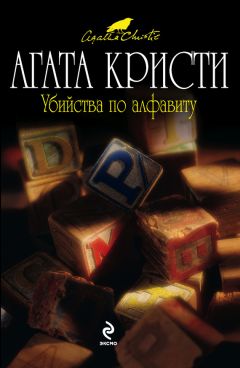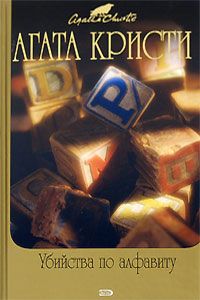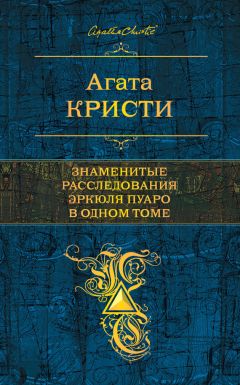Agatha Christie - Английский язык с Агатой Кристи. Убийства по алфавиту
"It is not the facts I reflect upon (это не факты, о чем я размышляю = не о фактах я размышляю) — but the mind of the murderer (но о том, что на уме у убийцы; mind — разум; память; умственное и психическое состояние)."
"The mind of a madman (на уме у сумасшедшего)!"
gain [ɡeɪn], reflection [rɪˈflekʃ(ǝ)n], madman [ˈmædmǝn]
"Reflecting?" I cried. "Is this a time for reflection?"
"Yes, a thousand times yes."
"But what can you possibly gain by reflection? You know the facts of the three cases by heart."
"It is not the facts I reflect upon — but the mind of the murderer."
"The mind of a madman!"
"Precisely (совершенно верно; precise — точный). And therefore not to be arrived at in a minute (и поэтому это не может быть постигнуто за минуту). When I know what the murderer is like (когда я узнаю, что из себя представляет убийца: «на что похож убийца»), I shall be able to find out who he is (я смогу узнать, кто он). And all the time I learn more (и все время я узнаю больше). After the Andover crime (после эндоверского преступления), what did we know about the murderer (что мы знали об убийце)? Next to nothing at all (практически ничего: «следующее к ничему вообще»). After the Bexhill crime (после бексхиллского преступления)? A little more (немного больше). After the Churston murder (после черстонского убийства)? More still (еще больше). I begin to see (я начинаю понимать) — not what you would like to see (не /то/, что бы вам хотелось видеть) — the outlines of a face and form (очертания лица и форм) — but the outlines of a mind (но очертания разума = состояния разума). A mind (разума) that moves and works in certain definite directions (который движется и работает в определенном направлении). After the next crime (после следующего преступления) — "
"Poirot!"
able [eɪbl], outline [ˈaʋtlaɪn], direction [dɪˈrekʃ(ǝ)n]
"Precisely. And therefore not to be arrived at in a minute. When I know what the murderer is like, I shall be able to find out who he is. And all the time I learn more. After the Andover crime, what did we know about the murderer? Next to nothing at all. After the Bexhill crime? A little more. After the Churston murder? More still. I begin to see — not what you would like to see — the outlines of a face and form — but the outlines of a mind. A mind that moves and works in certain definite directions. After the next crime — "
"Poirot!"
My friend looked at me dispassionately (мой друг бесстрастно посмотрел на меня; passion). "But, yes, Hastings (ну да, Гастингс), I think it is almost certain there will be another (я думаю, что почти наверняка будет другое). A lot depends on la chance (многое зависит от удачи). So far our inconnu has been lucky (пока нашему неизвестному /фр./ везло: «пока наш неизвестный был счастливчиком»). This time the luck may turn against him (в этот раз удача может повернуться к нему спиной: «против него»). But in any case (но в любом случае), after another crime (после следующего преступления), we shall know infinitely more (мы узнаем бесконечно больше). Crime is terribly revealing (преступление обнаруживает весьма /многое/: «преступление ужасно обнаруживающее»). Try and vary your methods (пытайтесь и меняйте ваши методы) as you will your tastes (как вы /это делаете с/ вашими вкусами), your habits (вашими привычками), your attitude of mind (вашим складом ума), and your soul is revealed by your actions (и ваша душа открывается вашими действиями). There are confusing indications (там есть вводящие в замешательство признаки) — sometimes it is (иногда это так) as though there were two intelligences at work (как будто там два интеллекта за работой) — but soon the outline will clear itself (но скоро очертания прояснятся), I shall know (я узнаю)."
dispassionately [dɪsˈpæʃǝnǝtlɪ], revealing [rɪˈvi:lɪŋ], soul [sǝʋl]
My friend looked at me dispassionately. "But, yes, Hastings, I think it is almost certain there will be another. A lot depends on la chance. So far our inconnu has been lucky. This time the luck may turn against him. But in any case, after another crime, we shall know infinitely more. Crime is terribly revealing. Try and vary your methods as you will your tastes, your habits, your attitude of mind, and your soul is revealed by your actions. There are confusing indications — sometimes it is as though there were two intelligences at work — but soon the outline will clear itself, I shall know."
"Who it is (кто это)?"
"No, Hastings (нет, Гастингс), I shall not know his name and address (я не узнаю его фамилию или адрес)! I shall know what kind of man he is (я узнаю, какой он человек: «какого рода человек он есть»)."
"And then (а затем)?"
"Et alors, je vais à la pêche (фр. а затем я пойду на рыбалку)."
As I looked rather bewildered (так как я выглядел довольно ошеломленным), he went on (он продолжал): "You comprehend, Hastings (вы понимаете, Гастингс), an expert fisherman knows exactly (рыбак-знаток точно знает) what flies to offer to what fish (каких мух = какие наживки предложить какой рыбе). I shall offer the right kind of fly (я предложу правильную муху/наживку)."
"And then (а затем)?"
expert [ˈekspǝ:t], exactly [ɪɡˈzækt], fly [flaɪ]
"Who it is?"
"No, Hastings, I shall not know his name and address! I shall know what kind of man he is."
"And then?"
"Et alors, je vais à la pêche."
As I looked rather bewildered, he went on: "You comprehend, Hastings, an expert fisherman knows exactly what flies to offer to what fish. I shall offer the right kind of fly."
"And then?"
"And then (а затем)? And then? You are as bad (с вами так же туго: «вы такой же плохой») as the superior Crome (как с надменным Кроумом) with his eternal, 'Oh, yes (с его вечным, «о да»)?' Eh bien (ну да), and then he will take the bait and the hook (а затем он заглотит наживку и крючок) and we will reel in the line (а мы потянем леску)."
"In the meantime people are dying right and left (в это время люди умирают направо и налево; to die)."
"Three people (три человека). And there are (а происходят), what is it (кстати: «что это») — about 140 road deaths every week (около ста сорока смертей на дорогах каждую неделю)?"
"That is entirely different (это совершенно другое)."
"It is probably exactly the same to those (это, вероятно, совершенно то же самое для тех) who die (кто умирает). For the others (для других), the relations (родственников), the friends (друзей) — yes, there is a difference (существует разница), but one thing at least rejoices me in this case (но одна вещь, по крайней мере, радует меня в этом случае)."
eternal [ɪˈtǝ:nǝl], reel [ri:l], rejoice [rɪˈʤɔɪs]
"And then? And then? You are as bad as the superior Crome with his eternal, 'Oh, yes?' Eh bien, and then he will take the bait and the hook and we will reel in the line …"
"In the meantime people are dying right and left."
"Three people. And there are, what is it — about 140 road deaths every week?"
"That is entirely different."
"It is probably exactly the same to those who die. For the others, the relations, the friends — yes, there is a difference, but one thing at least rejoices me in this case."
"By all means (конечно: «в любом случае») let us hear anything in the nature of rejoicing (давайте послушаем что-нибудь по сути радостное)."
"Inutile to be so sarcastic (фр. необязательно быть таким саркастичным). It rejoices me (меня радует) that there is here no shade of guilt to distress the innocent (что нет ни тени вины, чтобы причинить страдание невиновным)."




